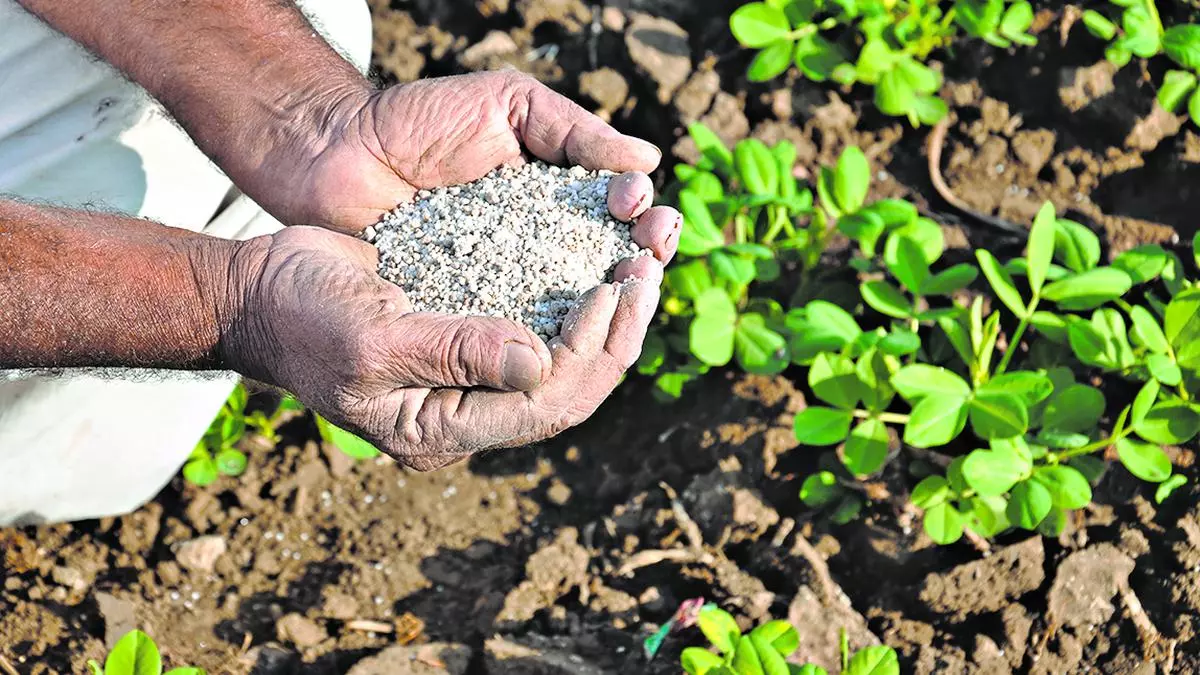Weak demand impacts agro-chem players in December quarter
The December quarter has been a mixed bag for the agro-chemical companies with many of them witnessing poor offtake due to weak and erratic monsoon and inadequate residual soil moisture for the rabi season. Also, the declining trend in prices of generic products impacted the performance of some companies.
While weak demand impacted sales volume and profitability of large companies such as Bayer CropScience and UPL among others, smaller peers such as Dhanuka Agritech and Insecticides (India) witnessed marginal growth.
Bayer CropScience reported a 31 per cent dip in net profits for the December quarter at ₹93.1 cr over compared with the same period a year ago (₹134.5 cr). Its revenues were down by 8 per cent at ₹954.9 cr (₹1037.9 cr). In a statement last week, Simon Wiebusch, Vice Chairman/Managing Director and CEO, BCSL, said, “An erratic monsoon led to low water reservoir levels. The resulting crop shifts and missed sprays, had an unfavorable impact on our quarterly sales performance owing to lower volumes and sales returns.”
Destocking weighs in
UPL saw a 28 per cent drop in its revenues at ₹9,887 crore (₹13,679 crore) and posted a net loss of ₹1,217 crore during the quarter. “Destocking continued to weigh down the global agrochemical market. Overall, prices remained stable quarter-on-quarter in the crop protection business but came off significantly vis-à-vis the high base of the previous year amid intense post-patent price competition. Given this backdrop, our Q3 performance was significantly impacted by these headwinds in line with rest of the industry, which is currently experiencing its worst downturn in decade” Mike Frank, CEO, UPL Corp.
In its India business, UPL saw a 21 per cent dip in volumes and a 13 per cent drop in prices. Also, the company faced high sales returns in key crops such as cotton with lower cotton acreage in North India and in pulses. A below-par rabi season in Telangana and Karnataka also impacted the performance. The company saw a low demand for its key product glufosinate versus last year due to dry kharif and rabi season, elevated channel stock, increased competition and higher sales return.
Rallis India saw its revenues dip by 5 per cent in December quarter to ₹598 crore (₹630 crore), while its profits saw a marginal increase at ₹24 crore (₹22.5 crore). “Our domestic business maintained its momentum despite challenging external conditions, recording volume growth of 7 per cent. However, challenges continued on the export front due to steep price drop and weak demand on account of continuing inventory overhang at industry level.” Sanjiv Lal, MD and CEO, Rallis India.
Positive despite odds
Insecticides (India) reported a marginal growth in operational revenues at ₹357.94 crore (₹356.53 crore) on Monday, while its profits improved by 31 per cent to ₹12.27 cr (₹9.33 cr). Rajesh Aggarwal, MD, IIL said “We continue to witness growth across our product portfolio, driven by R&D and backward integration initiatives. Our focused marketing efforts and brand-building activities have yielded positive results despite the odds of the season.”
Dhanuka Agritech, which reported a 2.5 per cent increase in revenues at ₹403 crore (₹393 crore), saw its profits recline marginally at ₹45.37 crore (₹46.05 crore). MK Dhanuka, Vice-Chairman and Managing Director, Dhanuka Agritech, said “This year due to continuous decline in prices of generic products ranging from 5 per cent to 40 per cent, there is a significant gap in volume growth and value growth. While, the volume has grown by 8.55 per cent, while the value has grown by only 2.51 per cent in third quarter, representing an overall value reduction of 6 per cent on the entire portfolio. In this challenging year, where the industry is facing significant headwinds and pressure on both topline and bottomline, Dhanuka has been able to show significant resilience.”
